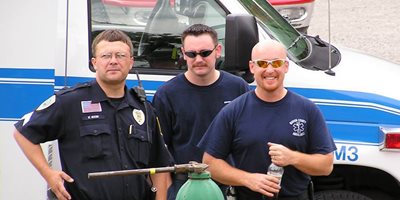In the heartland of Missouri lies Hannibal, a picturesque town with a rich history intertwined with the mighty Mississippi River and the legacy of Mark Twain. Protecting the citizens who live and work here is the Marion & Ralls County Ambulance Districts – a department covering 545 square miles of suburban and rural scenic beauty. At its helm is an individual whose journey through EMS echoes dedication, transformation, and a relentless pursuit of excellence.
Meet John Nemes, a Nationally Registered Paramedic and Chief of the Marion County EMS service. His story encapsulates the evolution of a department, the challenges faced in public service, and the personal growth intertwined with a lifelong commitment to saving lives.
The path to EMS: A critical moment sparked change
Chief Nemes hadn't planned on becoming an EMS chief, or even pursuing a career as an EMT or Paramedic. However, everything changed when his infant daughter faced a choking episode, triggering a profound awakening to the critical significance of emergency medical response.
“I felt helpless and did not like the feeling,” said Nemes. “Here I was, a firefighter who was accustomed to helping others and I froze.”
Nemes began his journey as a firefighter in 1992, eventually transitioning to a fire investigator. But that moment with his daughter made him want more. Encouraged by his wife, he pursued an EMS career, obtaining his EMT certification in 1998 and his Paramedic certification in 2002.
In 2006, driven by a desire to spare others the challenges he had experienced, he shifted his focus from the fire service to fully commit himself to EMS. Advancing through the ranks, he assumed the position of EMS Chief in 2011, where he oversees a team of more than 90 personnel and manages responsibilities across two counties.
Leading from the front and valuing lifelong learning
As an EMS Chief, Chief Nemes wears multiple hats. His duties span budget management, personnel oversight, policy development, and serving as Incident Commander for major emergencies. From coordinating with local hospitals to attending national meetings on evolving protocols, his role is dynamic and demanding.
However, amidst administrative responsibilities, Chief Nemes remains grounded in frontline emergency response, continuing to serve as a front-line Paramedic when needed. His leadership ethos revolves around accessibility, empathy, and a commitment to continuous improvement.
“I believe in the importance of the National Registry of EMTs because I believe the learning should never stop,” said Nemes, who has been continuously Nationally Registered for nearly 25 years. “EMS isn’t just a career. It is a journey of learning and personal growth.”
Highlighting the significance of continuous education, he stresses the necessity of keeping abreast of emerging techniques, trends, and technologies. He believes the National Registry affords EMS clinicians that opportunity and ability to remain on the cutting edge, while acknowledging that it goes hand in hand with that you see and learn on the streets each day.
“I worked very hard to get my National Registry certification,” said Nemes. “And I intend to keep it until I retire.”
Navigating the challenges and changing with the times

Hannibal, Missouri, with its strategic location intersecting major highways and a vibrant tourist scene, presents a diverse array of challenges for EMS responders. From medical emergencies to interfacility transfers, the department handles an average of 6,800 calls annually. Moreover, as a primary responder for neighboring services, the team juggles a mix of trauma and medical cases, often spanning state lines.
Amidst the chaos of emergency response, he underscores the significance of mental health awareness.
“We see a lot of stuff, some of it very bad,” said Chief Nemes. “And one of the biggest changes I’ve seen in my career is how we – as EMS personnel – handle critical stress and our own mental health.”
Two of Chief Nemes’ most impactful calls had very different outcomes. Both involved close friends.
“I responded to a cardiac arrest that ended up being a friend of mine,” said Nemes. “After several minutes of working on him, we were able to achieve ROSC (or the return of spontaneous circulation) and he survived.”
The best part was yet to come. Nemes recalled, “he came home from the hospital on the very same day as his first grandchild.”
However, not every call unfolds in such a manner. Nemes also answered the call to his best friend's suicide, a situation where they were powerless to intervene.
Acknowledging the profession's historical stigma surrounding mental well-being, Nemes emphasizes the need for continued support and resources for EMS personnel.
“Calls like that are why it is so important keep the spotlight on mental health in public service,” said Nemes. “We are human, too. But we must be ready for the next call, and it starts with ensuring that we are at the top of our own game.”
Family and a healthy balance between work and hobbies are critical
Outside of his professional duties, Chief Nemes finds solace in family and hobbies. Married for 33 years, his wife remains his steadfast support, alongside his two daughters and newfound joy in being a grandfather. An avid outdoorsman, he finds relaxation in cycling, kayaking, and fishing, alongside the therapeutic satisfaction of building and remodeling projects.
Nemes’ career path has been purpose-driven – from his firefighting days to leading a dynamic EMS department – he continues to inspire the next generation of EMS professionals.
Be kind, be humble.
“Be kind, be humble, and have genuine compassion for those you serve, as well as your co-workers,” Nemes said. “That is what will give you not only a career, but more importantly, satisfaction.”
Nemes encourages his colleagues to stop, think about everything they do, and put things into perspective.
“I’ve always been disturbed by someone saying, ‘I’m just an EMT,’” Nemes said. “There is no such thing as “I’m just an EMR or EMT. We are all care providers with the same goal, only different responsibilities. No one is any greater than the other. My EMT partner was a voice of reason and a great help many times during the care of patients. Paramedics, nurses, and doctors should never hold themselves higher than those they work alongside of. It is teamwork for the best interest of the patient.”
“It is natural to go through calls and sometimes feel like you aren’t making a difference,” said Nemes. “But perhaps you did make a difference without even realizing it – by listening, by holding a hand, or saying a prayer with the patient.”
Nemes believes “making a difference” is not limited to just successfully treating an illness or an injury.
“People may not remember what you said or did, but they will remember how you made them feel, and there is absolutely nothing more satisfying than making a difference in someone’s life.”
Read More Articles In The Critical Connection Series
James Avery - "An Unexpected Destiny - How One EMS Provider Discovered Sometimes Fate Has Other Plans"
Randy Brinckman - "From Special Forces to a special career"
Jessica Cervantez - "Be A Rock In The Moment People Are Falling Apart"
Savanna Coker - "Waves of change: A departure from the Baywatch narrative"
Claire Countryman & Chris Ruggiero - "The next chapter could save a life"
John Nemes - "The journey of an EMS chief"
Tom Perreault - "43 Years Down and a Lifetime to Go"
Justin Solobay - "A Night To Remember"
Meryah Wilson - "Calm and collected; an Ohio paramedic makes history with her city’s department"
Bill Wood - "50 Consecutive Years Of National Registry Certification"
Media Contact:
Shane Cartmill
Public Relations and Media Manager
scartmill@nremt.org


